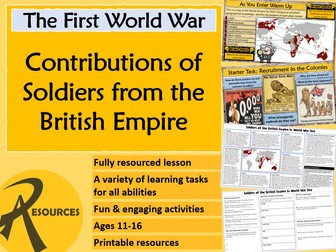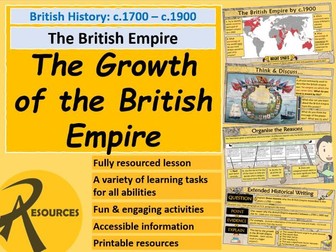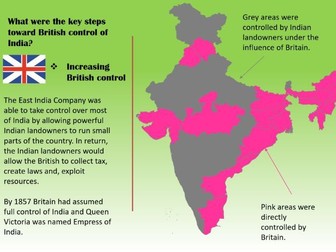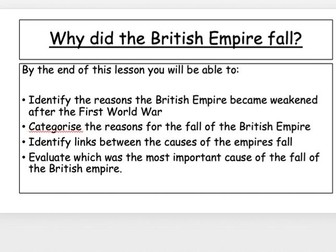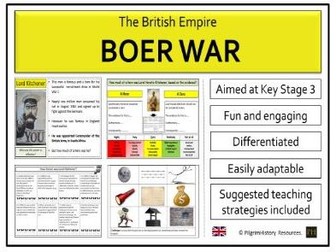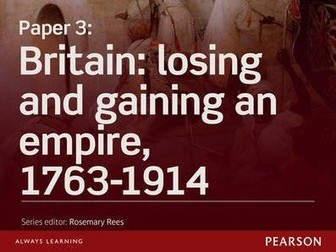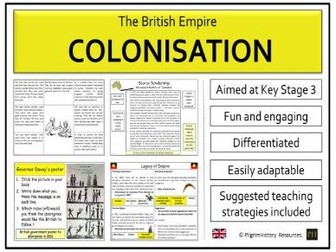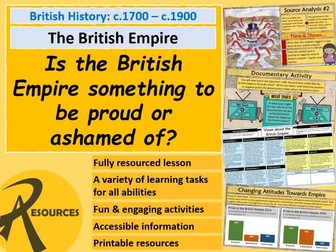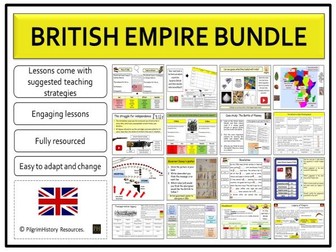First World War -Soldiers from British Empire & Colonies
<p><strong>In this lesson, students will learn about the wide-ranging contributions made by the soldiers from Britain’s Empire during the First World War. Students will first learn which colonies contributed soldiers and then explain why men from the British Empire volunteered and what contributions they made to Britain’s role in the war.</strong></p>
<p>This is a fully resources lesson which includes a warm up, starter task, engaging background information, various learning activities, challenge tasks and learning reviews.<br />
**<br />
The lesson includes the following:**<br />
Slide 1: Title slide<br />
Slide 2: Outline of the main lesson aims<br />
Slide 3-4: As you enter warm up – identify the colonies of the British Empire map and answers. Challenge questions included.<br />
Slide 5: Background Information about Britain’s colonies and Britain’s role as the ‘Mother Country’.<br />
Slide 6: Starter Task – Recruitment in the colonies – a source from the Prime Minister of Canada<br />
Slide 7-8: Activity 1: Recruitment posters from the colonies – three examples of recruitment posters which students have to analyse. A printable worksheet also included.<br />
Slide 9: Background Information – India’s contribution to the First World War.<br />
Side 10: Background Information and discussion activity<br />
Slide 11: Useful clips<br />
Slide 12: Printable fact sheet<br />
Slide 13: Printable worksheet<br />
Slide 14: Extended writing task – Explain the importance of Britain’s Empire.<br />
Slide 15: Challenge Questions<br />
Slide 16-17: Learning Review – Which country/colony am I?</p>
<p>I would be grateful if you could leave a review for the lesson if you feel the lesson is effective for you. Many thanks if you spend some of your valuable time doing this and your feedback is highly valued.</p>
<p>All images used in this lesson are in the public domain and are therefore copyright free at the time of publishing. Images which require attribution have been attributed in the notes section of each slide where the image appears. If you feel any errors have been made, please contact me at <a href="mailto:raschoolresources@gmail.com" target="_blank" rel="nofollow">raschoolresources@gmail.com</a> in the first instance to resolve any issues. My lessons are completed using PowerPoint and designed on widescreen formatting. Thank you.</p>
